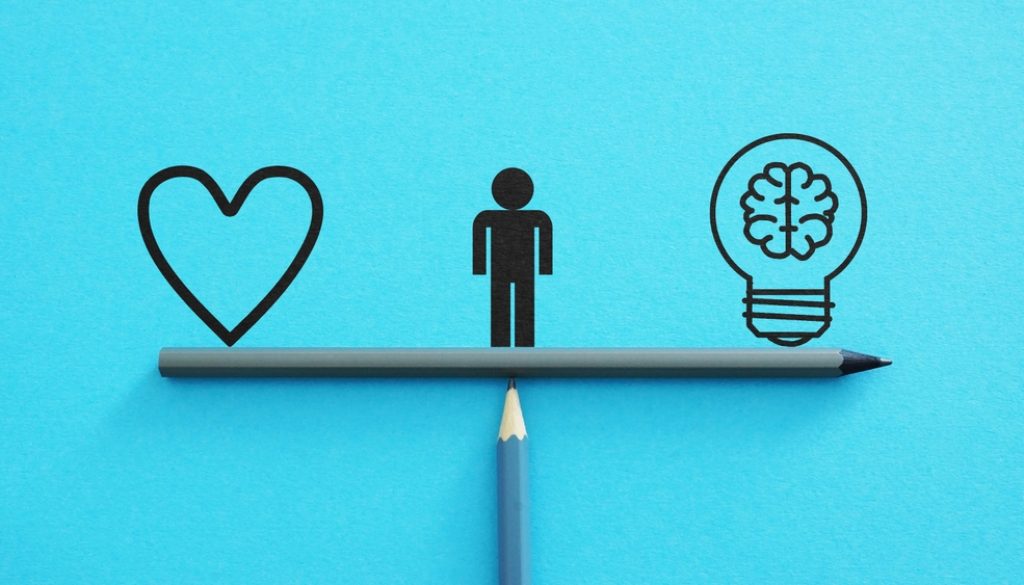Emotional Intelligence in Healthcare
Healthcare is a pressure cooker. To offset the intense work environment, teamwork is necessary for healthcare provider well-being and optimal patient outcomes. Healthcare teams are unique because they consist of individuals with different training and backgrounds. However, each person shares the same goal: providing excellent patient care. Given the long hours and high stakes, healthcare teams must develop a sense of community and mutual respect. But how does one foster this camaraderie in such high-stress conditions? Develop emotional intelligence (EI).
Understanding the Essence of Emotional Intelligence in Healthcare
Emotional intelligence is the capacity to be aware of, control, and express one’s emotions and to handle interpersonal relationships empathetically. Emotional intelligence is pivotal in enhancing teamwork and creating community among healthcare practitioners. It acts as the glue that holds team members together, enabling them to navigate through their job’s emotional and physical stressors with grace and composure.
The Evidence Speaks: Emotional Intelligence in Medical Training
A growing body of evidence supports the need to develop emotional intelligence in medical students, residents, and staff physicians. Studies demonstrate that individuals with higher levels of emotional intelligence are better equipped to manage stress, communicate effectively, and empathize with patients. These traits contribute to more cohesive and efficient healthcare teams. Furthermore, incorporating EI training into medical education has improved students’ psychological well-being, reduced medical student burnout, and prepared them to become more compassionate caregivers.
Improving Job Satisfaction and Preventing Burnout
The intricate relationship between emotional intelligence, job satisfaction, and burnout in the healthcare sector cannot be overstated. Burnout is characterized by emotional exhaustion, depersonalization, and a diminished sense of accomplishment. Burnout is alarmingly prevalent among healthcare workers. Herein lies the transformative power of EI; by fostering a supportive environment that values emotional well-being and mutual respect, healthcare teams can significantly mitigate the effects of burnout. In short, emotional intelligence protects against physician burnout.
Emotional intelligence equips healthcare professionals with the tools they need to effectively manage their emotions and those of their colleagues and patients. This enhances their ability to cope with the high demands of their job and contributes to a more positive and supportive workplace culture. As a result, job satisfaction increases, turnover decreases, and the overall quality of patient care improves.
Cultivating Emotional Intelligence in Healthcare: A Pathway to Thriving Communities
Building emotional intelligence is not an overnight task; it requires dedication, practice, and a willingness to self-reflect. Healthcare institutions can play a pivotal role in this developmental journey by providing access to EI training programs, fostering open communication, and encouraging teamwork. Such initiatives contribute to the personal growth of healthcare professionals and enhance their collective capacity to provide compassionate and effective care.
To develop emotional intelligence and prevent burnout while boosting career satisfaction, physicians can incorporate the following self-coaching exercises into their routine:
- Self-Awareness Journaling: Dedicate a few minutes each day to reflect on your emotions, thoughts, and interactions. Write down what triggered specific feelings and analyze how they affected your behavior and decision-making. This practice enhances self-awareness and helps you understand your emotional patterns better.
- Mindful Breathing: Integrate mindful breathing exercises into your daily routine to manage stress and increase emotional regulation. Spend five minutes focusing on your breath, allowing you to stay grounded and calm. This exerise is very effective in the moment, when you feel strong emotions taking over. A few mindful deep breaths will activate your parasympathetic nervous system and temper strong emotions.
- Empathetic Listening: During patient interactions or team meetings, practice empathetic listening. Focus entirely on the speaker without formulating a response, aiming to understand their perspective fully. This enhances your empathy and strengthens your communication skills.
- Reflective Self-Assessment: At the end of each week, assess your emotional responses and interactions using structured worksheets. Identify areas for improvement and set specific goals for developing aspects of emotional intelligence such as self-regulation and social skills.
- Intentional Acts of Kindness: Regularly engage in genuine acts of kindness towards colleagues and patients. These acts build positive connections and foster a compassionate work environment, enhancing overall emotional intelligence and reducing burnout.
- Growth Mindset Visualization: Visualize your professional challenges as opportunities for growth. Embrace a growth mindset by reminding yourself that setbacks are learning experiences. This practice encourages resilience and boosts career satisfaction.
By integrating these exercises into your routine, you can enhance your emotional intelligence, leading to better stress management, improved patient care, and increased career fulfillment.
Conclusion: The Heart of Healthcare
The healthcare landscape is full of challenges that test the resilience, empathy, and cooperation of the entire medical team. Emotional intelligence, with its profound impact on teamwork, job satisfaction, and burnout prevention, is a ctitical skill to develop. As healthcare professionals and institutions embrace and cultivate EI, they pave the way for more robust, compassionate, and high-functioning healthcare teams. In doing so, they will elevate the standard of care and rekindle the sense of community and camaraderie at the heart of healthcare.
Looking to improve your emotional intelligence, schedule a free coaching consultation!





